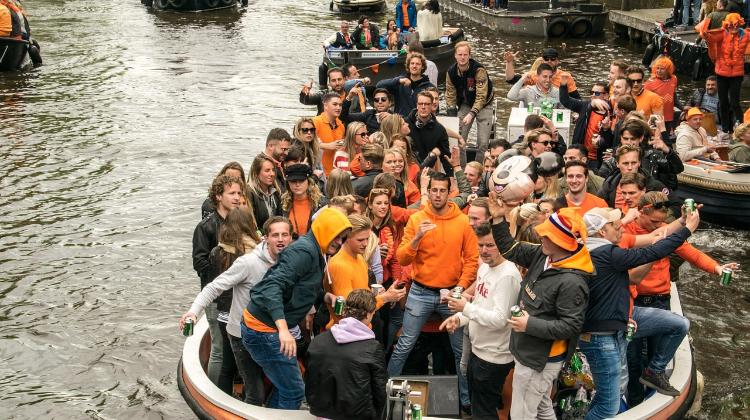A flurry of national holidays
What it means to celebrate and to remember

The past two months have seen a flurry of Dutch national holidays: King's Day, Easter, Liberation Day (no, not that one), and Ascension Day. While some of these are religious in nature and so are familiar, the others reflect something that I, as a foreigner, have come to appreciate about living and working in the Netherlands.
King's Day is a holiday that you either love or hate, and I am on the side of the lovers. Who knew you could have a street party for an entire city (Amsterdam) with happy, orange-wearing people dancing in various states of inebriation? I have yet to experience the flea markets that also pop up during this day, but the idea of getting rid of lovingly used items seems highly appropriate for a country of frugal consumers. But as the name also indicates, the holiday is ostensibly to celebrate the royal family, which, as an American, seems very odd. Is there a need for a monarchy in the 21st century, especially given how expensive the institution is to maintain and the obvious privilege associated with aristocracy?
Surprisingly, no one I know seems to mind that the holiday is to celebrate a king because, in the end, it is a holiday (except this year, since it fell on a Saturday) and you can party. What means more is that it is a tradition, and given how volatile the world is these days, having something reliable is worth its weight in gold (also useful as an inflation hedge). And living in the Netherlands means you are expected to be reliable, punctual, and frugal, which, to be honest, are fairly conservative values. While King's Day may be one of excess, it is one day out of a year of sobriety as well as an outdoor celebration with people, when so many days in the year are grey.
My favorite Dutch holiday, it turns out, is Bevrijdingsdag, aka Liberation Day. When I first experienced it last year, I was walking with some friends after dinner, and someone opened a window to shush us. I did not know why until a friend remembered there were two minutes of silence every year in the evening. I had noticed all the flags that were hung outside, which I thought were left over from King's Day, but then saw that they were at half-mast to remember those who died in World War Two and later conflicts.
This year, I was again with some friends at a restaurant when the two minutes of silence began. Our server had told us before that when it was eight o'clock, the restaurant would stop and that all guests were expected to do the same. My friends who were visiting from London had no idea what to expect but were happy to participate in the commemoration. And the restaurant did fall completely silent. No one spoke, the kitchen was quiet, and the servers stood at the bar with arms clasped or hanging at their side.
I don't know what my friends thought about it, but I used those two minutes to be grateful for my life and towards those who have made my life possible. I was grateful even for the chance to have the time to do this, to slow down and reflect. Freedom is not free, and so many have sacrificed for it. It moved me to take deep breaths and share that space and silence with others, which may not be so different from watching a movie in a cinema or dancing in a crowded club. That the Dutch do this every year and so soon after a day of day-drinking revelry is one of those fascinating contradictions that make this country so interesting and liveable.